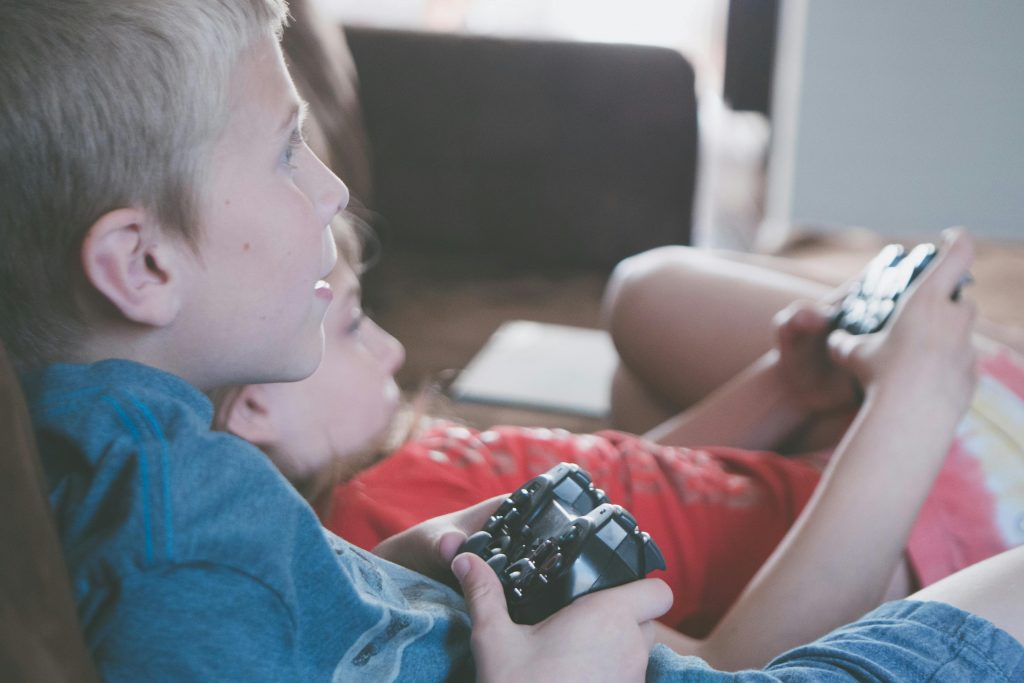
Excessive Gaming and Its Toll on Children’s Futures
In the age of digital connectivity, the allure of online gaming has captivated millions of children worldwide. While gaming can offer entertainment, socialization, and even cognitive benefits when enjoyed in moderation, the line between healthy engagement and excessive indulgence is often blurred. What’s more concerning is the role of parental permissiveness in enabling and even exacerbating this phenomenon.
In the age of digital connectivity, the allure of online gaming has captivated millions of children worldwide. While gaming can offer entertainment, socialization, and even cognitive benefits when enjoyed in moderation, the line between healthy engagement and excessive indulgence is often blurred. What’s more concerning is the role of parental permissiveness in enabling and even exacerbating this phenomenon.
Abusive behaviour towards parents who allow their children unrestricted access to online gaming platforms is a growing concern with profound implications for the child’s future. While it’s easy to dismiss gaming as harmless fun, the reality is far more complex. Excessive gaming can lead to a myriad of issues ranging from decreased academic performance and social withdrawal to addiction and even long-term psychological harm. One of the primary dangers of unchecked gaming is its potential to interfere with a child’s academic success. Time spent in front of a screen gaming is time not spent on homework, studying, or engaging in other enriching activities. Consequently, grades may suffer, leading to a negative impact on future educational and career opportunities. Parents who turn a blind eye to this neglect of academic responsibilities are complicit in hindering their child’s development and future prospects.
Moreover, excessive gaming can contribute to social isolation and impaired social skills. When children spend hours immersed in virtual worlds, they may neglect real-life relationships and interactions. This can lead to feelings of loneliness, difficulty forming meaningful connections, and a lack of essential social skills crucial for success in adulthood. Parents who prioritize gaming over fostering healthy social development are setting their children up for challenges in forming relationships and navigating the complexities of the real world.
Perhaps the most insidious consequence of unchecked gaming is the risk of addiction. Just like substance abuse, gaming addiction can hijack the brain’s reward system, leading to compulsive behaviour and withdrawal symptoms when gaming is restricted. This addiction can have severe ramifications on mental health, exacerbating anxiety, depression, and other psychological issues. Parents who fail to intervene and set limits on gaming are enabling addictive behaviours that can derail their child’s future and lead to lifelong struggles with self-control and impulse management.
Furthermore, excessive gaming can desensitize children to real-world consequences and responsibilities. In virtual realms where actions often have minimal repercussions, children may develop a skewed sense of accountability and fail to grasp the importance of discipline and hard work. This can translate into a lack of motivation and drive in pursuing meaningful goals, hindering their personal and professional growth later in life.
The abusive behaviour towards parents who permit excessive gaming among their children is a pressing issue with far-reaching implications. By turning a blind eye to the dangers of unchecked gaming, parents are complicit in jeopardizing their child’s academic success, social development, mental health, and overall future prospects. It’s imperative for parents to recognize the importance of setting boundaries, promoting balance, and prioritizing their child’s long-term well-being over short-term gratification. Only through responsible parenting and vigilant oversight can we safeguard our children from the perils of excessive gaming and empower them to realize their full potential in the digital age and beyond.
Flipside
Strategies parents can employ to turn around the situation and promote healthier gaming habits for their children:
Set Clear Boundaries:
Establish firm rules around gaming, including designated time limits and specific times of day when gaming is allowed. Consistency is key to ensuring these boundaries are respected.
Encourage Alternative Activities:
Provide a variety of alternative activities that offer similar enjoyment and engagement, such as outdoor play, sports, arts and crafts, or family game nights. By diversifying their interests, children are less likely to become overly reliant on gaming for entertainment.
Lead by Example:
Be a positive role model by demonstrating balanced screen time habits yourself. Show your children the importance of prioritizing offline activities and maintaining a healthy balance between technology use and other aspects of life.
Foster Open Communication:
Create a safe and supportive environment where your child feels comfortable discussing their gaming habits and any concerns they may have. Listen to their perspective and work together to find mutually acceptable solutions.
Monitor and Supervise:
Stay actively involved in your child’s gaming activities by monitoring the content they consume, the amount of time they spend gaming, and their emotional reactions to gaming experiences. Use parental controls and monitoring tools to limit access to inappropriate content and track usage patterns.
Promote Healthy Habits:
Encourage regular breaks during gaming sessions to prevent prolonged periods of sedentary behaviour. Emphasize the importance of physical activity, proper nutrition, and sufficient sleep for overall well-being.
Seek Professional Help if Needed:
If you suspect that your child may be struggling with gaming addiction or related mental health issues, don’t hesitate to seek support from qualified professionals, such as therapists specializing in gaming addiction or family counsellors.
By implementing these proactive measures, parents can help their children develop healthier attitudes towards gaming and ensure that it remains a positive and enriching aspect of their lives rather than a detrimental one.
